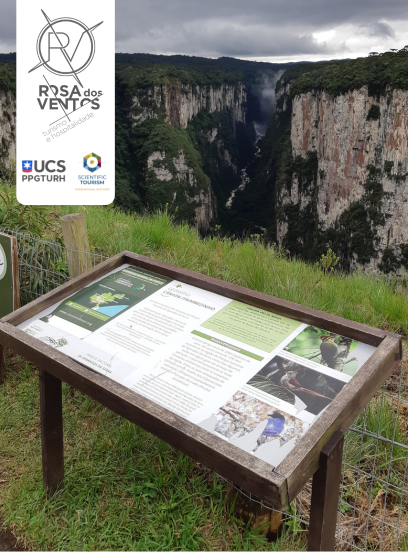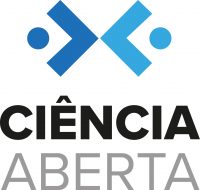El Turismo Científico en Colombia Insular:
estudio de caso en San Andrés y Providencia para la conservación, la educación ambiental y el desarrollo sostenible
DOI:
https://doi.org/10.18226/21789061.v17ip170202Resumo
Este artículo analiza el modelo emergente de turismo científico en el archipiélago de San Andrés, Providencia y Santa Catalina, Colombia, con el objetivo de evaluar su potencial para fortalecer la conservación ambiental, el empoderamiento comunitario y la diversificación económica local. Mediante una metodología cualitativa basada en el análisis de quince experiencias locales y una encuesta aplicada a residentes del archipiélago, se examina el nivel de desarrollo, gobernanza y sostenibilidad de iniciativas como senderos interpretativos, fincas agroecológicas, restauración coralina, museos comunitarios y avistamiento de fauna. El estudio se estructura a partir del modelo teórico en cinco etapas propuesto por Bourlon et al. (2022): identificación de recursos, capacidades científicas locales, sitios e iniciativas, procesos formativos, y estrategias de puesta en valor. Los resultados evidencian un interés significativo de la comunidad en participar en actividades educativas, científicas y de conservación, aunque persisten barreras en infraestructura, regulación ambiental y formación técnica. Se concluye que el turismo científico puede consolidarse como un modelo de desarrollo insular sostenible si se articula con políticas públicas, programas de educación ambiental, y alianzas entre comunidad, academia, sector privado y autoridades ambientales.
Referências
Bórquez Reyes, R., & Bourlon, F. (2019). Scientific Tourism as a Common Project.
Bourlon, F., Mao, P., & Vialette, C. (2022). Ciencia y desarrollo territorial: el turismo científico en la Patagonia. Revista de Geografía Alpina.
Bourlon, F., Mao, P., & Osorio, M. (2015). El turismo científico en Aysén: un modelo de valorización territorial basado en el patrimonio y actores locales. Sociedad Hoy, (28), 83-105.
Bourlon, F., & Mao, P. (2011). Las formas del turismo científico en Aysén, Chile. Gestión Turística, (15), 74-98.
Bruner, E., & Kirshenblatt-Gimblett, B. (1994). Maasai on the lawn: Tourist realism in East Africa. Cultural Anthropology, 9(4), 435-470.
Cinner, J. E., McClanahan, T. R., Daw, T. M., Graham, N. A. J., Maina, J., Wilson, S. K., & Hughes, T. P. (2009). Linking Social and Ecological Systems to Sustain Coral Reef Fisheries. Current Biology, 19(3), 206–212.
COLCIENCIAS. (2017). Proyecto oferta COLCIENCIAS "Colombia bio-turismo científico de naturaleza".
CORALINA. (2020). Informe anual de actividades 2020.
El Espectador. (2021). El papel del Jardín Botánico de San Andrés en el turismo y la conservación. El Espectador.
Greenwood, D. (1989). Culture by the pound: An anthropological perspective on tourism as cultural commoditization. In V. Smith (Ed.), Hosts and Guests: The Anthropology of Tourism (pp. 171-185). Philadelphia: University of Pennsylvania Press.
Hernández Pardo, P. (2011). Ecoturismo en Ecuador: El caso del Oglán alto. ECA Sinergia, 2(1), 9–17.
Hjalager, A. M. (2015). 100 Innovations That Transformed Tourism. Journal of Travel Research, 54(1), 3–21.
Jafari, J. (2005). El turismo como disciplina científica. Annals of Tourism Research, 43, 43-59.
Laarman, J., & Perdue, R. (1989). Science tourism in Costa Rica. Annals of Tourism Research, 16(2), 205–215.
Moreno Escobedo, M. A. (2017). El turismo científico como actividad alternativa de aporte al modelo de desarrollo local. Baja California Sur, México: U. Autónoma de Baja California.
Pardo, C., & Nieto, D. (2015). Turismo antártico: Naturaleza y ciencia en los confines del turismo contemporáneo. Revista de Turismo y Conservación, 12(3), 45-58.
Popescu, M., & Gruia, R. (2010). Touristic Management of Cultural Heritage in Rural Areas of Southern Dobrogea. Journal of Cultural Heritage, 6(2), 123-137.
Red Internacional de Turismo Científico. (2021). Publicaciones académicas.
Reyes, R. B., Bourlon, F., Antonio, M., & Escobedo, M. (2019). El Turismo Científico Y Su Influencia En La Comunidad Local: El Estudio De Caso De La Red De Turismo Científico En Aysén, Chile.
Salazar, N. B. (2013). Imagineering Otherness: Anthropological Legacies in Contemporary Tourism. Anthropological Quarterly, 86(3), 669–696.
Silva, I. (2002). Desarrollo local y alternativas de desarrollo productivo: el impulso de un clúster eco-turístico de la región de Aysén. CEPAL.
Star, S. L. (1989). Institutional Ecology, 'Translations' and Boundary Objects: Amateurs and Professionals in Berkeley's Museum of Vertebrate Zoology, 1907-39. Social Studies of Science, Vol. 19, No. 3 (Aug., 1989), pp. 387-420.
Suárez-Puerta, B. (2021). Manual de Gestión del Conocimiento del Turismo Científico en Playas Remotas. Proplayas.
UNESCO. (2000). Seaflower Biosphere Reserve: A Model for Caribbean Conservation.
Van Dijk, T. A. (2009). Discurso y poder. Barcelona: Gedisa.
Viaja San Andrés. (2023). Ecoturismo y biodiversidad en San Andrés.
Vieira Santos, J. C., Freitas, D. P., & Carneiro, V. A. (2010). Turismo, educação e trabalho de campo em uma paisagem protegida. Revista Brasileira de Turismo e Educação, 8(2), 45-59.
West, P. (2008). Tourism as Science and Science as Tourism. Berkeley: U. of California Press.
Downloads
Publicado
Como Citar
Edição
Seção
Licença
Autores que publicam nesta revista concordam com os seguintes termos:
Os Autores mantém os direitos autorais e concedem à revista o direito de primeira publicação, com o trabalho simultaneamente licenciado sob a Creative Commons Attribution License que permitindo o compartilhamento do trabalho com reconhecimento da autoria do trabalho e publicação inicial nesta revista.
Autores têm autorização para assumir contratos adicionais separadamente, para distribuição não-exclusiva da versão do trabalho publicada nesta revista (ex.: publicar em repositório institucional ou como capítulo de livro), com reconhecimento de autoria e publicação inicial nesta revista.
Autores têm permissão e são estimulados a publicar e distribuir seu trabalho online (ex.: em repositórios institucionais ou na sua página pessoal) a qualquer ponto antes ou durante o processo editorial, já que isso pode gerar alterações produtivas, bem como aumentar o impacto e a citação do trabalho publicado (Veja O Efeito do Acesso Livre).








